The Natural Contender
Clothing manufacturing faces numerous challenges. Rather than pointing fingers, we’re committed to creating change from within by practicing what we preach. For us, prioritizing organic cotton is key. We believe it, along with other efforts, can truly impact our industry for the better.
Organic cotton is grown in more than 20 countries worldwide. It is cultivated without genetically modified plants or synthetic chemicals, promoting biodiversity. Its production uses low-impact methodology, restores soil fertility, reduces toxic input, and follows federal regulations to avoid genetically engineered seeds. Certification from third-party organizations ensures organic farms meet approved standards.
Growing and producing organic cotton often requires less energy than conventional cotton. And on average, opting for organic cotton can save several thousand liters of water – a compelling reason of its own to make the choice. Beyond the environmental
considerations, its elongated natural fibers makes organic cotton a softer and arguably safer alternative to conventionally grown cotton.
↓ read more
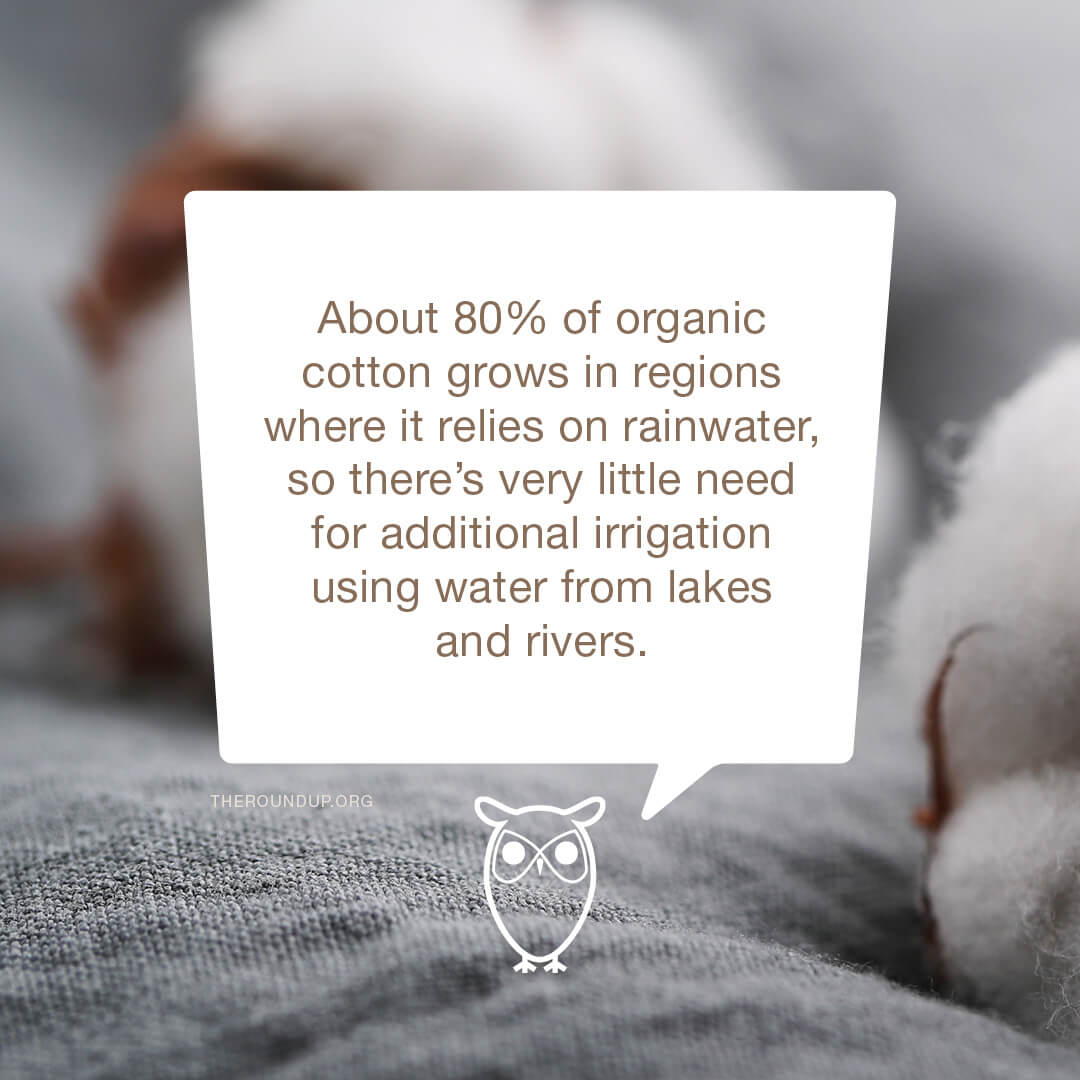
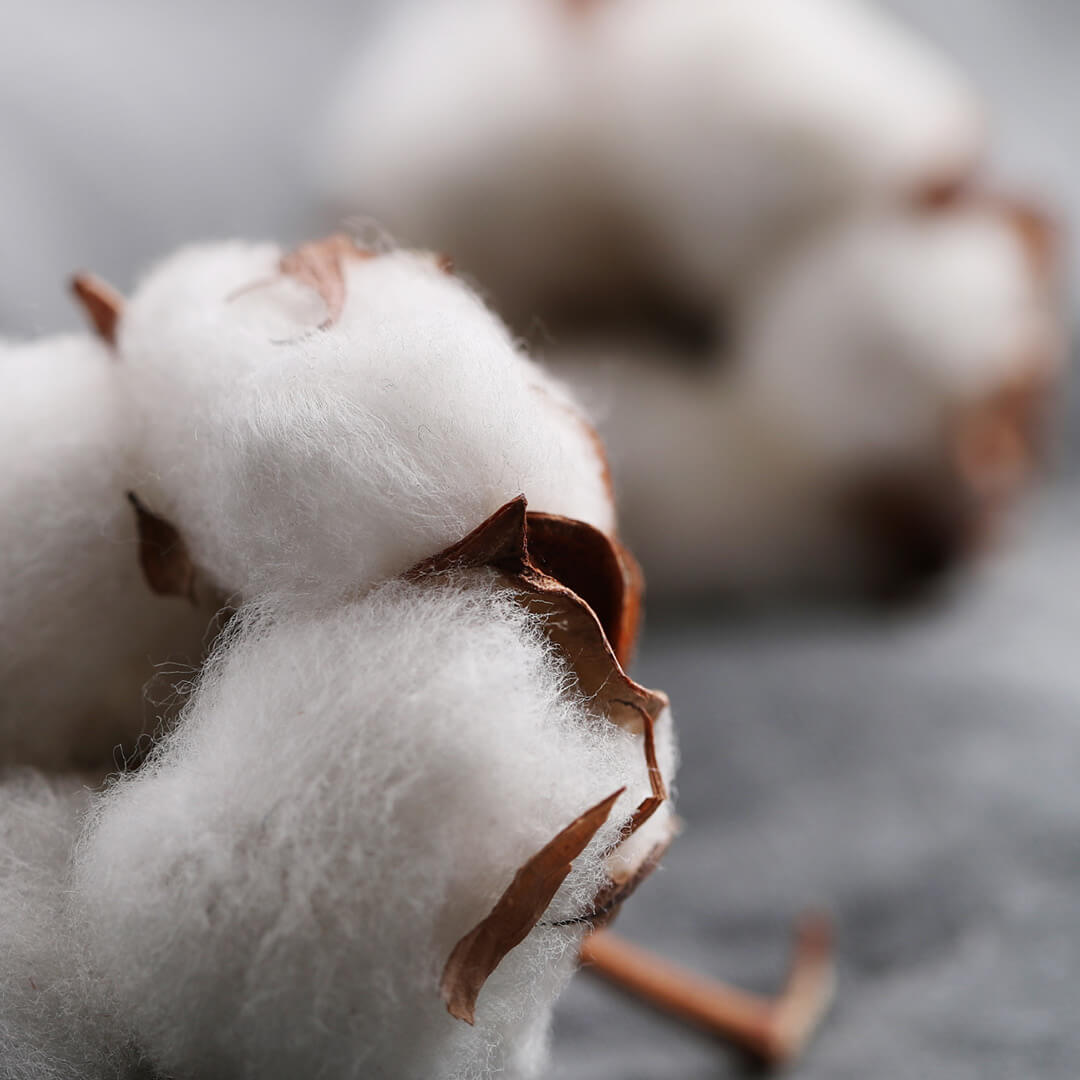
A shared responsibility
Sounds too good to be true? Well, it’s important to be cautious since organic cotton may require more crops, possibly negating its benefits. Shortcuts like increased water and land use are common to compensate for the lack of fertilizers. If that is the case, the cotton doesn’t live up to the organic standards required.
To minimize the environmental impact, we believe it’s crucial to support brands using recycled or certified organic cotton. The easiest way to find out is to check for certifications and additional information on how the cotton is grown.
A most important journey
Since the beginning, KnowledgeCotton Apparel has tried to impact the world through thoughtful choices and community collaboration. After decades of pioneering practices, consumer awareness is on the rise. Yet around 70% of all fibers on the market are still synthetic. And although approximately 26 million tonnes of cotton are produced each year, only 1.1% of the world’s textiles are from organically grown cotton. If you ask us, this is simply unacceptable.
↓ read more
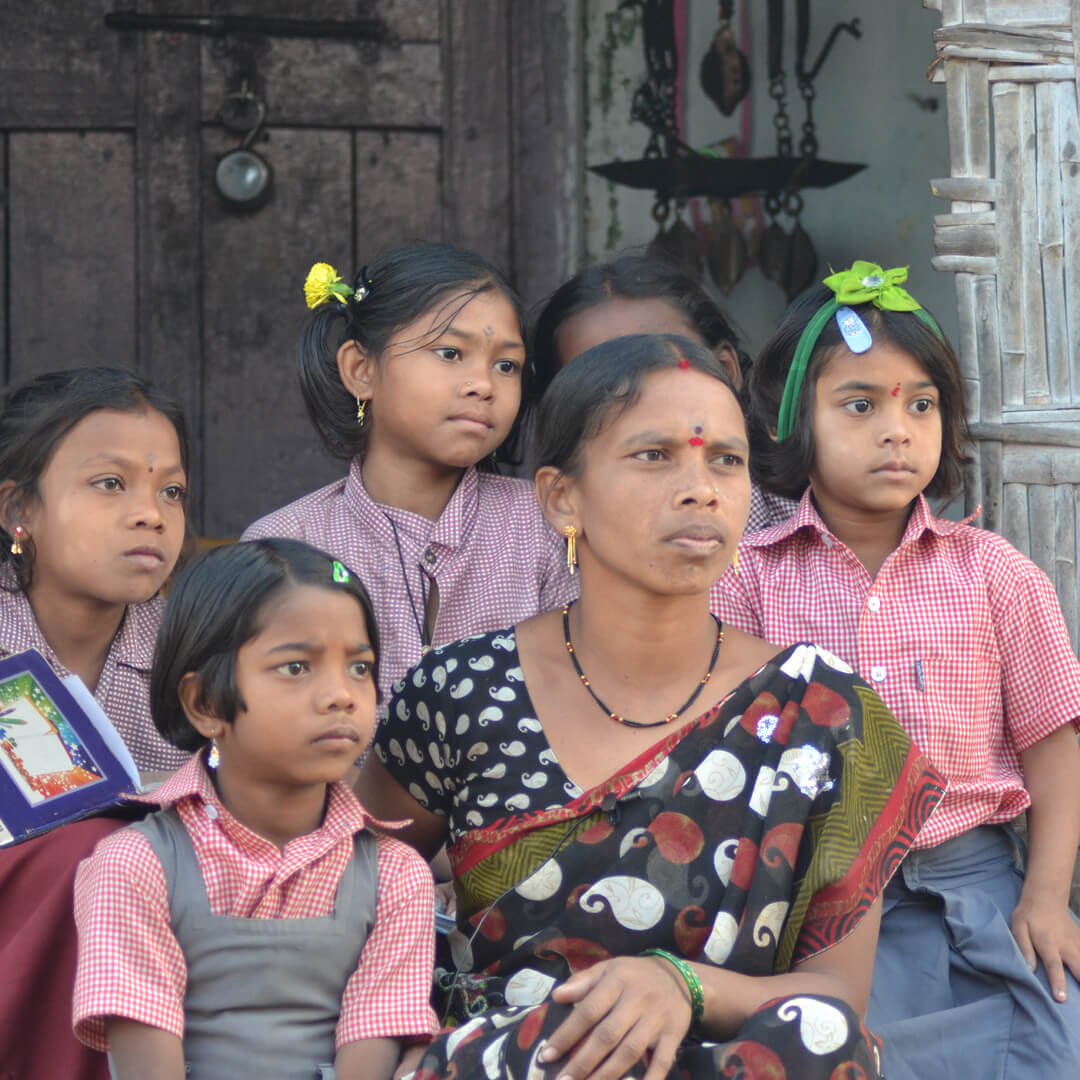
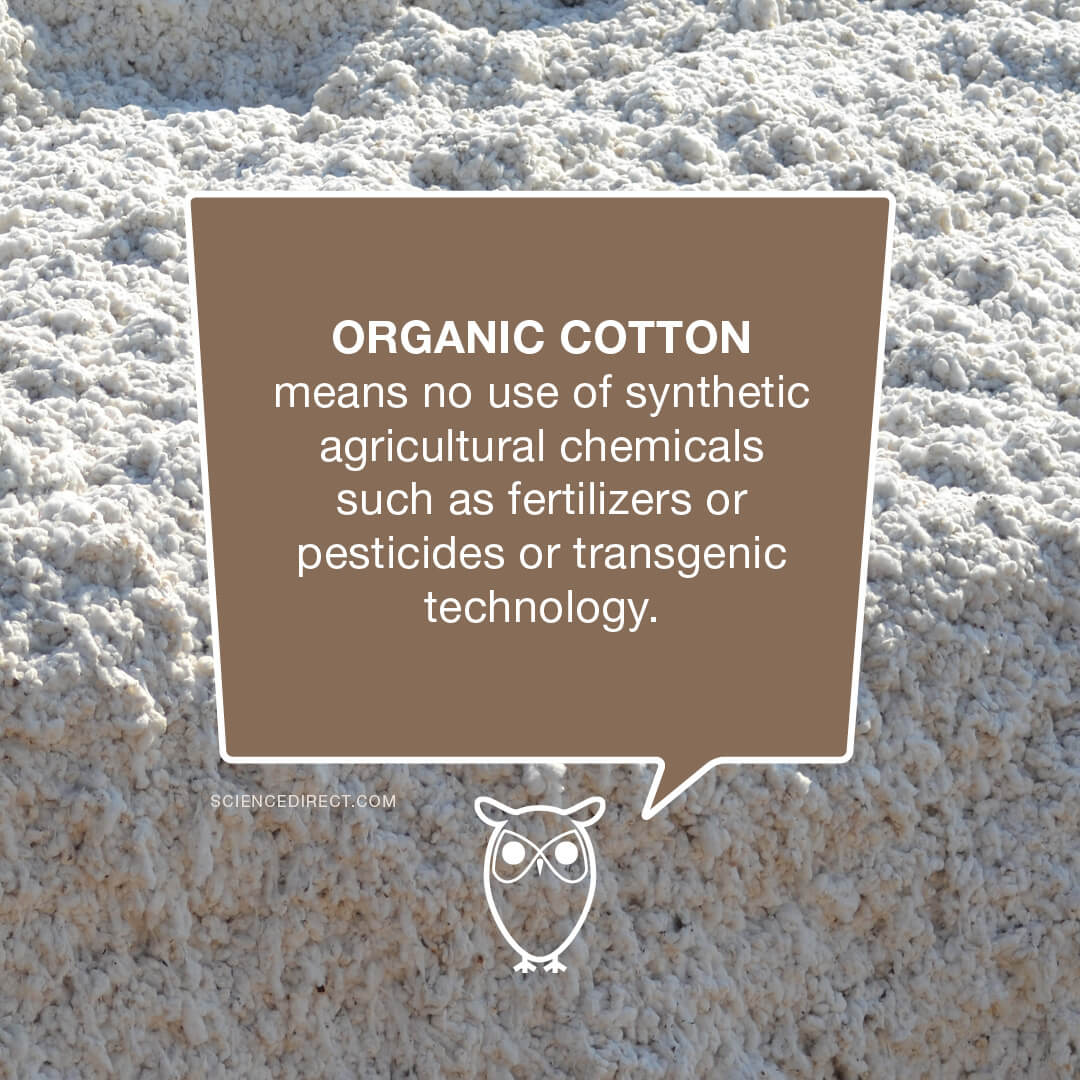
Certifying a better tomorrow together
We have championed the use of organic materials from the beginning. Unlike most of the market, our cotton meets the highest certification standards. Currently, all of our cotton garments are GOTS-certified, and 25% also meet the very highest standard: Regenerative Organic Certified®.
Raising the standard
Global Organic Textile Standard (GOTS) is a leading certification standard for organic textiles including both ecological and social criteria. It covers the handling, production, packaging, labeling, trading, and distribution of organic textiles. GOTS is among several
certifications for our clothing.
By ensuring the security of our manufacturing chain through all available means,
we hope that others will join in and help pave a route for a better tomorrow.
KnowledgeCotton Apparel is certified by Control Union, lic. no. 847594
Digging where we stand
Knowledge is among the first, and very few, clothing companies licensed to work with Regenerative Organic Certified® cotton. The purpose of regenerative organic farming is to reverse CO2 buildup by restoring soil health. Avoiding synthetic pesticides, fertilizers, GMOs, and chemicals, the crop rotation and diverse planting improve soil health, biodiversity, and yields. The practices also help prevent deforestation and put an end to desertification. Just to name a few of the numerous benefits.
By caring for each step in the production chain to the best of our ability, we can help change our industry from within. Securing regenerative practices that work to maximize carbon fixation in the ground, is perhaps the most important action.
ROA ID Number # 122
↓ read more
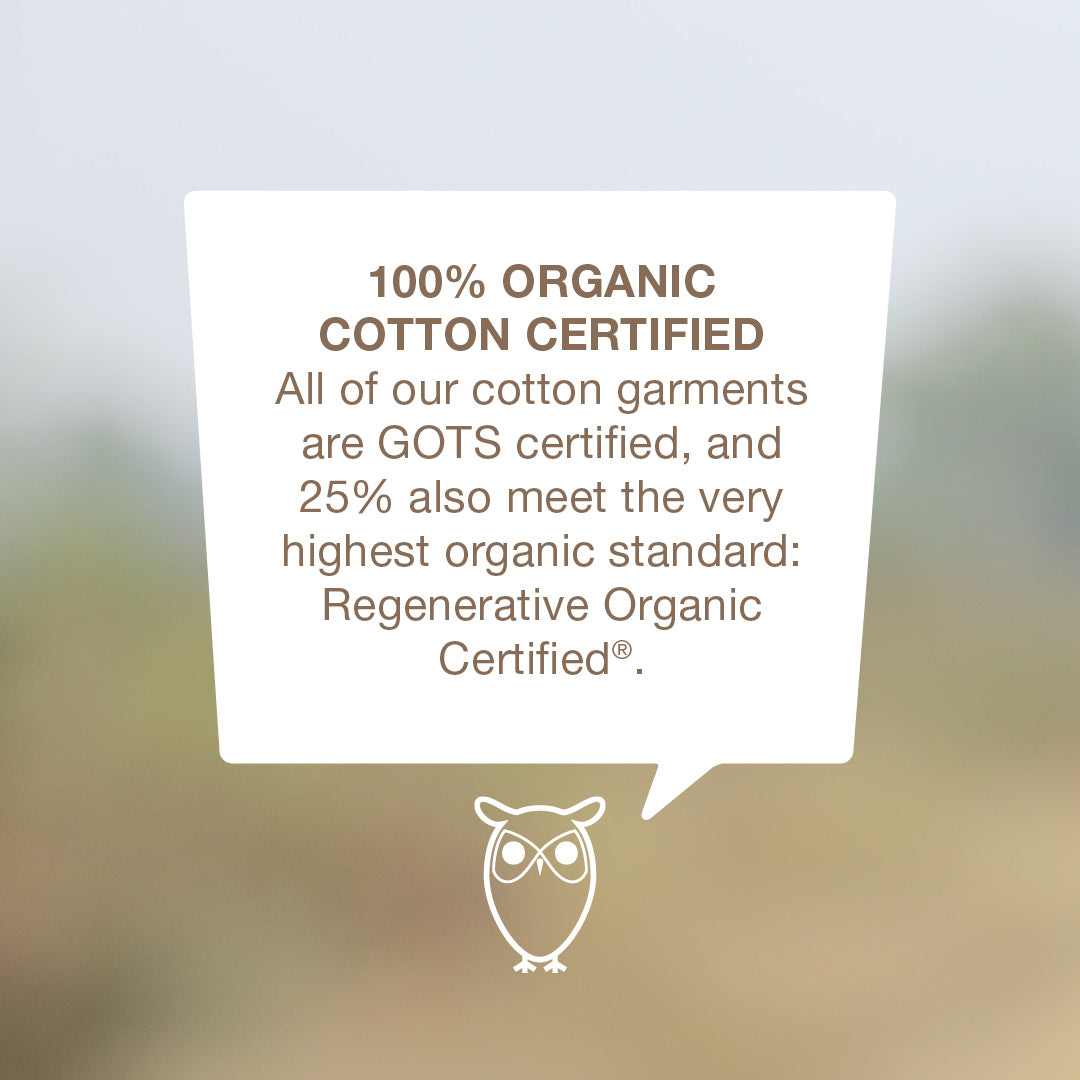

Partnering with Chetna
The Chetna Organic initiative, established in 2004, is all about empowering small farmers in central and eastern India by helping them make a better profit from fairtrade produce. That’s something we’re extremely proud have been a part of for more than a decade. Each year, we strike agreements to guarantee the purchase of a set amount of organic cotton, ensuring an income for the farmers regardless of how much they produce. Today, around 70% of our Indian cotton supply hails from Chetna families, and we’re looking to increase that number even more.
Let’s come together in making the future organic!
Oh, one more thing! Did you know that organic cotton goes beyond clothing? It’s used in everything from personal care items to home furnishings and children’s products. Two-thirds of cottonseed is used as animal feed, and cottonseed oil is often found in food products such as cookies and chips. Its versatility makes organic cotton essential in various industries.
Good to know, right?
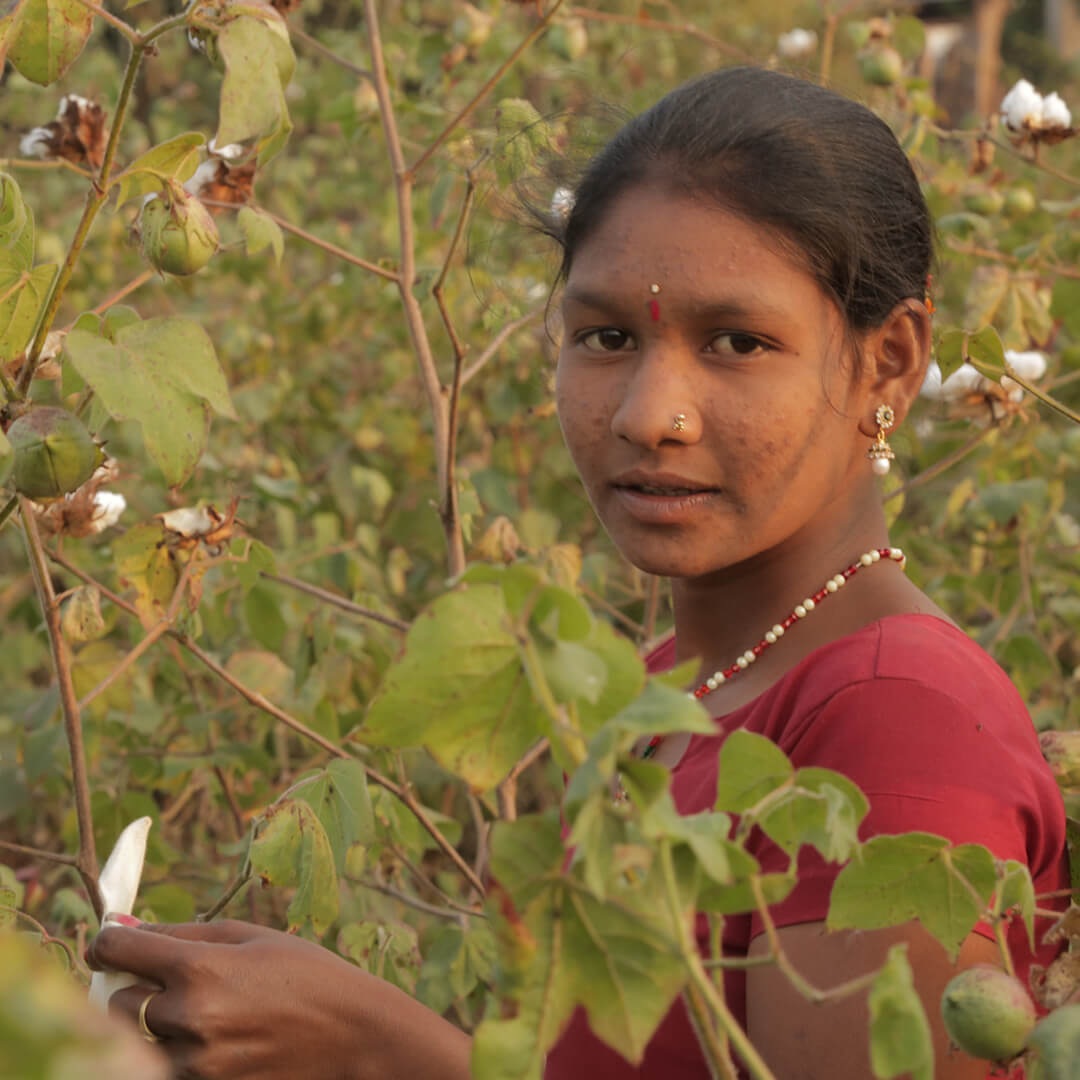
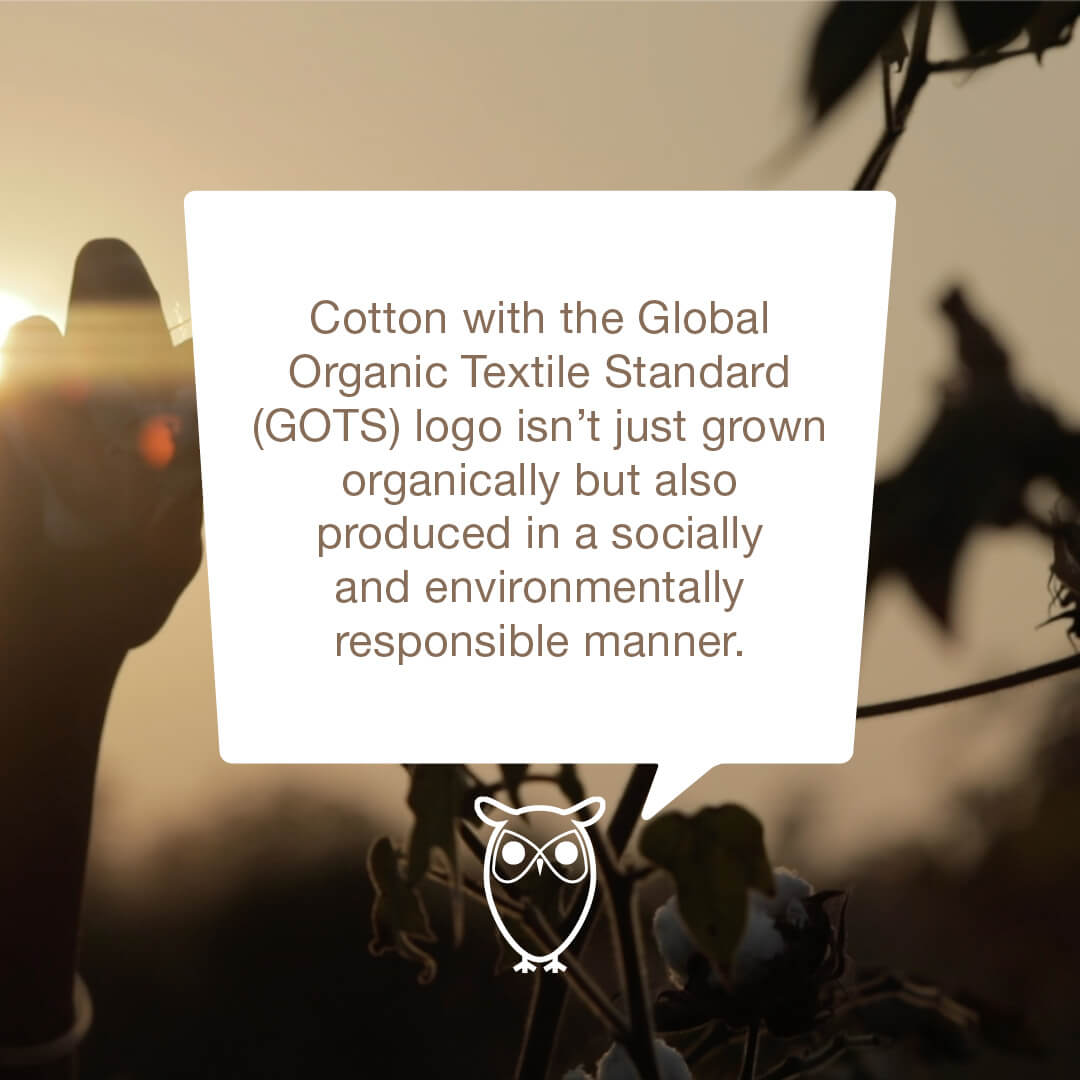
Sources:
The University of Sydney, Environmental Justice Foundation, WWF, TheRoundup, Organic Trade Association, The Conscious Club, Global Organic Textile Standard, Regenerative Organic Alliance, Chetna Organic, ICAC, IFOAM.










